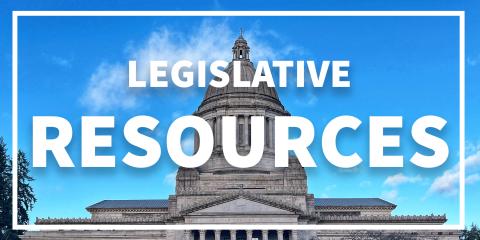
Earlier this month, the Senate Transportation Committee held a work session in Bremerton. Among the presentations was one from Senate staff on the current state of the transportation budget going into 2025.
Spoiler … it is bleak.
The six-year budget outlook has only soured since session ended back in March, with several funds dipping significantly into the red in the out years.
Specifically, the Puget Sound Ferry Operations Account is estimated to be down $137 million by 2027-2029, and the Move Ahead WA Account down by half a billion. Additionally, federal revenues that were assumed in Move Ahead have not materialized, notably $650 million in competitive funds.
We also do not have clarity on gas tax returns.
Last year the Legislature moved transportation forecasting from WSDOT to the Forecasting and Revenue Council and an updated forecast has not been delivered for close to a year. Legislative staff believe revenues will be down when the new forecast in released this month.
The Carbon Fee under the Climate Commitment Act (CCA) has also not brought in as much revenue this year as was assumed in the 2024 budget.
In 2023, the Carbon Fee brought in significantly higher than expected returns, but those windfalls have not lasted. As the carbon market continues to stabilize forecasting may remain difficult.
The CCA is also under pressure due to Initiative 2117 that will be voted on in the November general election.
If the CCA is struck down, that will mean billions in losses of multi-modal transportation revenue in the years moving forward. Senate staff noted that 9% of the transportation budget is now from the carbon fee.
Finally, of note, are commitments the Legislature needs (hopes!?!) to make in the coming budget.
Of note are $5 billion+ in culvert replacement obligations, currently funded projects from Move Ahead that continue to experience cost escalations, ferry fleet demands, and maintenance and preservation needs. As you might imagine, our agency believes we should also be a priority as policy makers build their budget.
To speak candidly, the numbers that Senate Staff reported were mind-boggling and sobering. If these revenue trends continue, the 2025 legislative session could be very challenging. By November 6 (the day after election day) we should have greater clarity.
Until then, fill up those gas tanks, renew those car tabs, and consider buying an electric vehicle!

